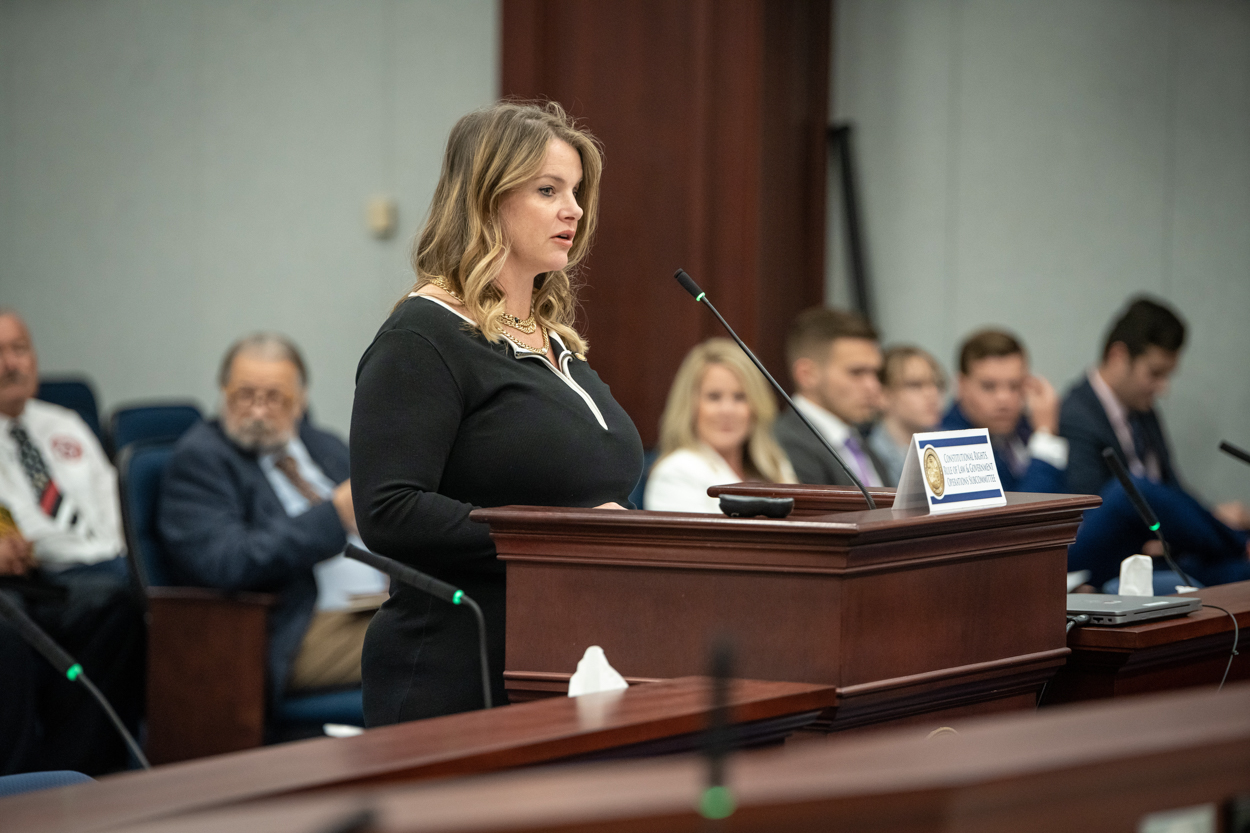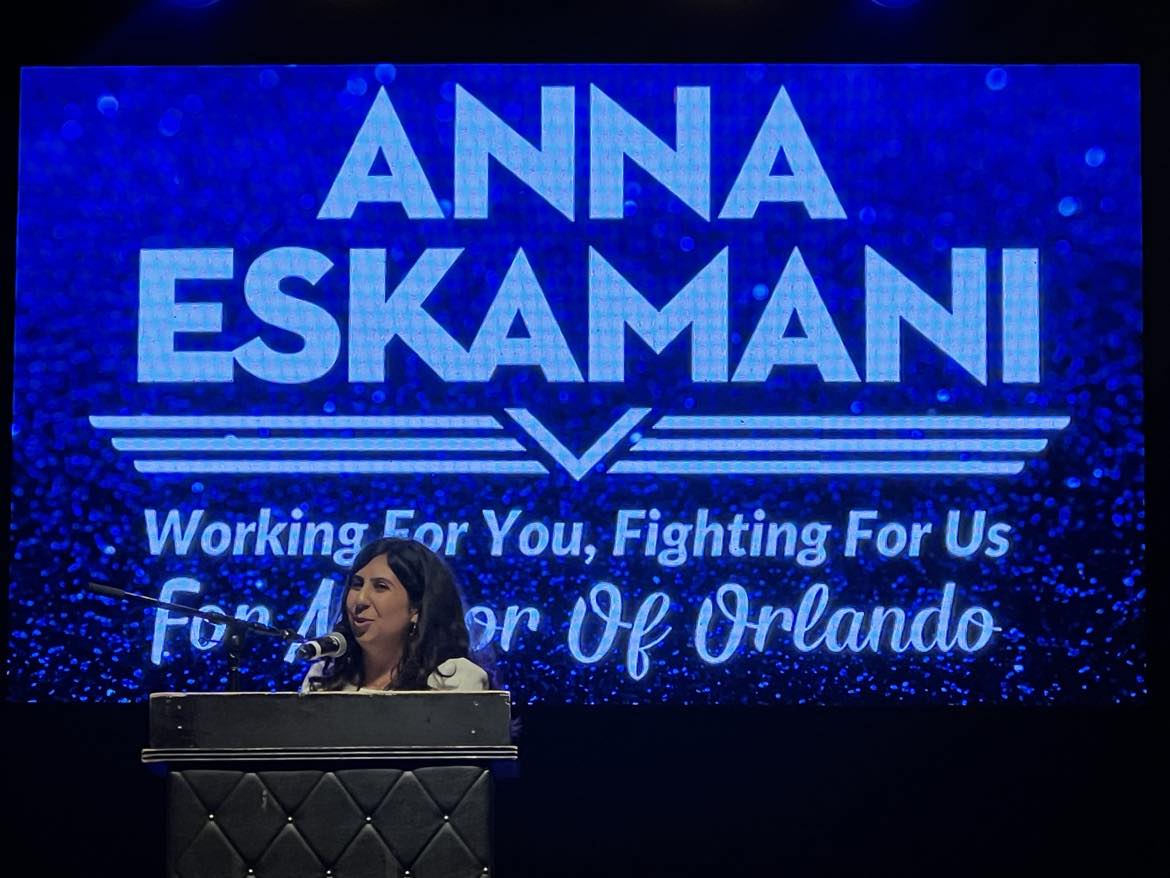Legislation to update Florida’s rules for lawsuits against the government — and significantly increase the sums payable to plaintiffs — just cleared its first House hurdle with overwhelming support.
But based on the testimony and discussion that preceded the vote, the measure isn’t yet in the shape it needs to be to pass a floor vote.
House Civil Justice and Claims Subcommittee members voted 17-1 for the bill (HB 301), which would overhaul Florida’s sovereign immunity statutes.
Sovereign immunity is a centuries-old standard in all but 11 states that shields state governments and their local subdivisions and agencies from having to settle pricey lawsuits without their consent.
HB 301, sponsored by Sarasota Republican Rep. Fiona McFarland, wouldn’t repeal sovereign immunity protections. But it would revamp them for the first time since 2010 when lawmakers capped the payouts a government could provide in cases of negligence at $200,000 for one person and $300,000 for each incident.
To get any more, even if the government or agency in question agrees the victim deserves it, the Legislature must approve a claims bill. Dozens of such bills are filed yearly, but few pass.
The arrangement sounds odd because it is, McFarland said, and it unjustly denies recompense to people who deserve relief.
“The claims bill process is basically asking me to vote on how much somebody’s life is worth, and that’s an unnatural function for us as a Legislature. That’s a judicial branch function,” she said.
“We’re not asking our governments to provide more services through this bill. We’re not asking them to do more for us. We’re asking them to do more for us when they’ve done something wrong.”
If passed, HB 301 would raise the liability cap for claims against the state to $1 million for one person and $3 million for each incident. Those sums would increase to $1.1 million and $3.2 million, respectively, in 2030. Notably, it would empower local governments to voluntarily settle claims exceeding those caps without approval from the Legislature, something not possible today
The bill would also prohibit insurance companies from having Florida policies that condition benefits on enacting claims bills. And it wouldn’t be retroactive, meaning any claims brought against the state, local governments, or agencies before the bill’s effective date of Oct. 1.
Representatives of several local governments, school districts and agencies signaled opposition to the measure, including the Florida Association of Counties, Florida League of Cities, Miami-Dade County, Martin County School District, Small County Coalition, Small School District Council Consortium and Safety Net Hospital Alliance of Florida.
Bob Harris, a lobbyist for the Panhandle Area Education Consortium, argued that the bill in its current form could bankrupt small municipalities and school districts. He said that while it is noble of McFarland to want to hold governments as accountable to citizens as companies are to consumers, private and public entities are only so comparable.
“We’re not Walmart or Amazon. If we have a problem with our school buses, we can’t just stop transporting them. We can’t close our gyms down. We can’t close our schools. The law says we have to let people come in who slip and fall and are hurt,” he said. “The amount being recommended, I don’t know how we can possibly afford that.”
Auburndale Mayor Dorthea Bogert said she worried the bill would encourage litigation.
“I feel like we’re potentially creating a niche market for this type of lawsuit, especially when they see these increased limits,” she said.
Eric Tinstman, an Executive Committee member of the Florida Justice Association, disagreed. He called McFarland’s proposal a much-needed modernization of a “broken” system that today perpetuates poor governmental oversight.
The term sovereign immunity is derived from English common law and the belief that the king could do no legal wrong and was immune from civil or criminal prosecution.
“I can think of a no more anti-American statement than the king can do no wrong,” Tinstman said. “When you start holding people accountable for their negligence … things get safer.”
Before the panel’s members approved HB 301 on Wednesday, they unanimously voted for a claims bill (HB 6507) by Republican Pensacola Rep. Alex Andrade that would clear $1.2 million to a Pasco County man named Marcus Button, who suffered life-altering injuries in a 2006 school bus crash.
In 2009, the Pasco County School District admitted it was at fault and agreed to pay Button $2 million.
“Unfortunately, because of the way our statutes are set up, Pasco County does not feel they have the legal authority to make that settlement payment,” Andrade said. “Because of sovereign immunity, we’re stuck in this position.”
Several House members referenced Button’s ordeal while discussing HB 301.
Wellington Democratic Rep. Mike Gottlieb, a lawyer, said bills like McFarland’s highlight legislators’ conflicting interests and obligations. Each House member represents about 180,000 residents, but they also serve the interests of local governments.
“We have to balance that, and the best way I can think about that, being a litigator, is Lady Justice (who is) blindfolded,” he said.
“When we’re asked to limit sovereign immunity, we’re asking Lady Justice to pick up that blindfold and wink at the city and say, ‘You’re not going to be held accountable for the same bad faith act … (as a private entity would, and) a person deserves the just compensation they would get if it was a private bad actor. This is about due process, which is fundamental to fairness.”
North Miami Democratic Rep. Dotie Joseph, a lawyer, said she supports the bill’s intent but couldn’t vote for it now.
She called Florida’s requirement that a bill be passed to deliver adequate redress to a regular person “insane.”
“I’m not even going to front,” she said. “The claims process is trash.”
HB 301 will next go to the House Budget Committee, its second-to-last stop before reaching a floor vote. It does not yet have a Senate companion.
HB 6507 has two more House stops and will next be heard by the House Judiciary Committee. Its Senate analog by Tallahassee Republican Sen. Corey Simon awaits its first hearing.
Post Views: 0

 Entertainment8 years ago
Entertainment8 years ago
 Entertainment8 years ago
Entertainment8 years ago
 Politics8 years ago
Politics8 years ago
 Tech8 years ago
Tech8 years ago
 Tech8 years ago
Tech8 years ago
 Tech8 years ago
Tech8 years ago
 Politics8 years ago
Politics8 years ago
 Entertainment8 years ago
Entertainment8 years ago










